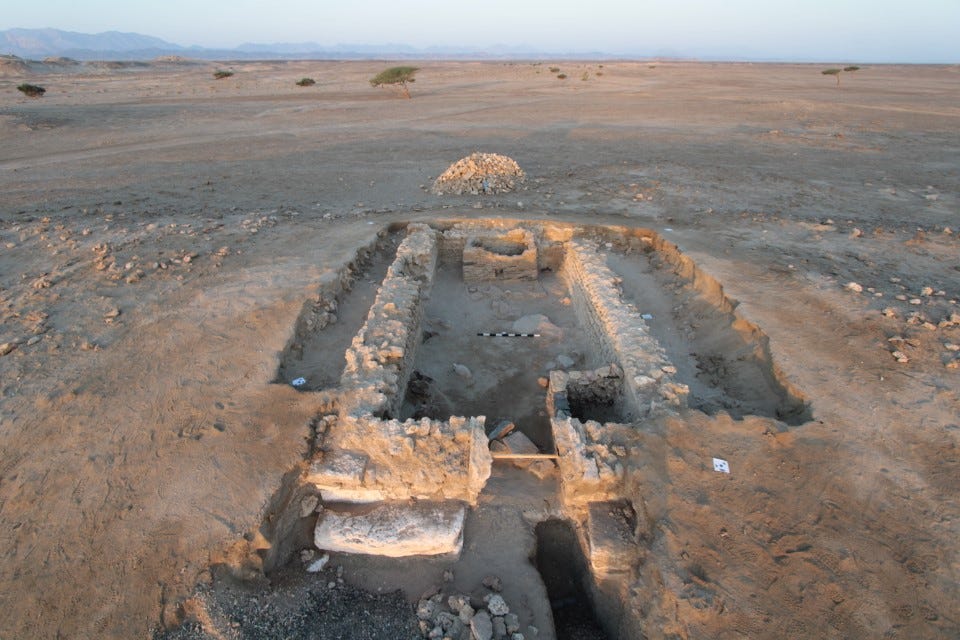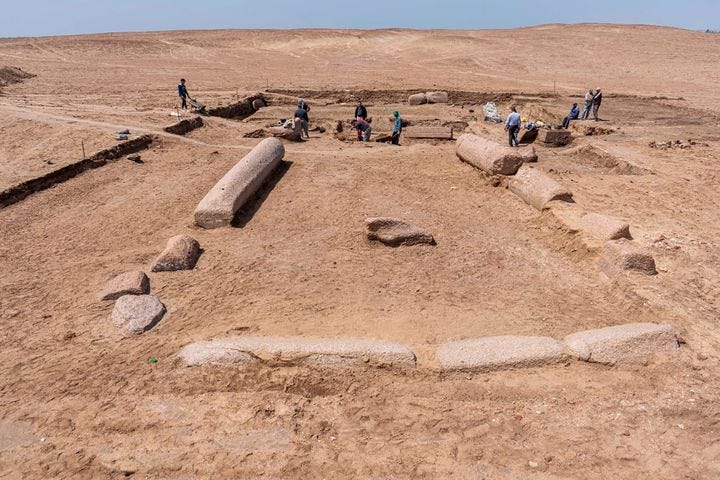Weekly Roundup- June 10th
Vatican Archives, the soundscape of Cairo, Vesuvius DNA- continue reading to find out more!
Save Ancient Studies Book Club: ‘The Good Kings’ by Kara Cooney
Click the link to sign up for the talk! Dr. Christian Casey will interview Kara about her book followed by a live Q&A. Should be a great chat!
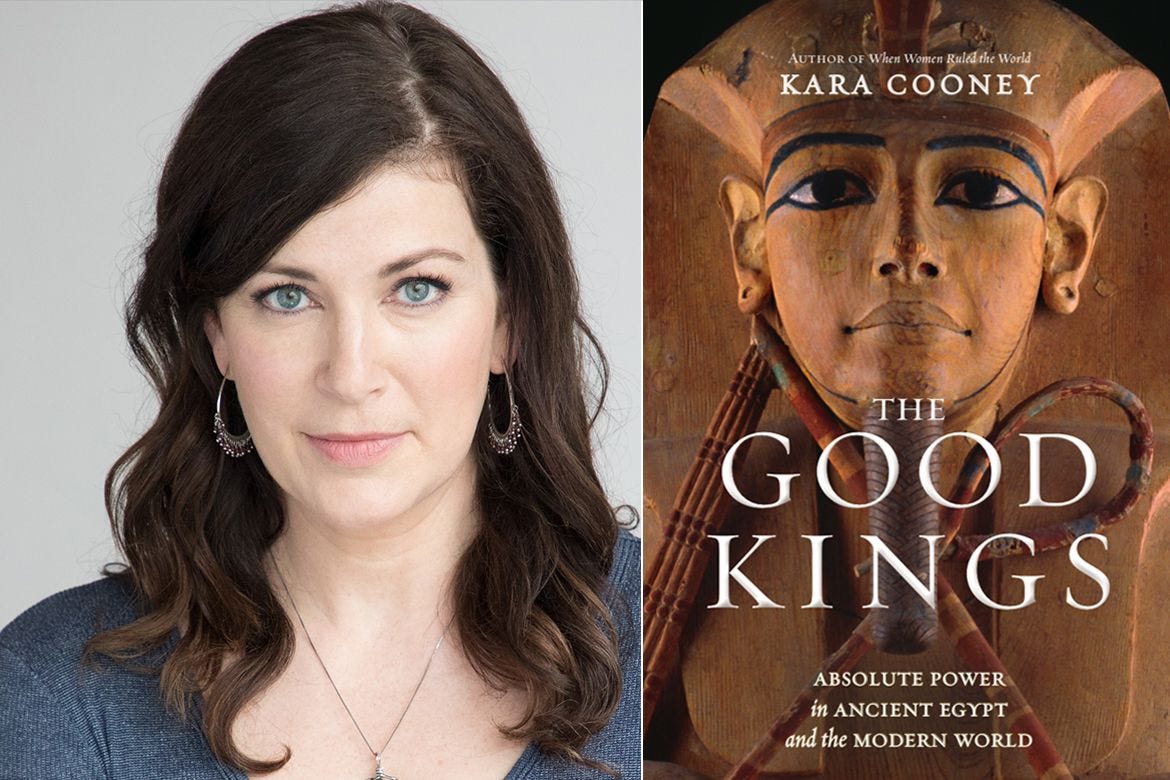
Deep in Vatican Archives, Scholar Discovers ‘Flabbergasting’ Secrets
No, these aren’t ancient Vatican secrets, but they certainly contribute to the world’s continuing exposure of patriarchal power, which one tiny revelation at a time can take down the repressive system we have lived under for the last five thousand years. Prof. Kertzer of Brown University’s latest latest book, “The Pope at War,” investigates the the Catholic Church’s role in World War II and the Holocaust. Within the Vatican Archives, Kertzer found multitudes of evidence showing what led to Pope Pius XII to stay silent about Hitler’s genocide of Jewish people. Most interestingly, with the occupation of the Vatican the Pope’s officials urged him to create a Catholic political party, which would go on to become the Christian Democrats party.
Jordan remarks:
This reminds me of a recent lecture we have by Prof. Thomas Schneider about the Egyptologist Hermann Grapow’s involvement in the Third Reich. Power is never singular. Authoritarian leaders must spread their tendrils—be it within religious spheres or even the humanities—to make their rule seem good and pure. (Yes, read THE GOOD KINGS for more ideas on that...).
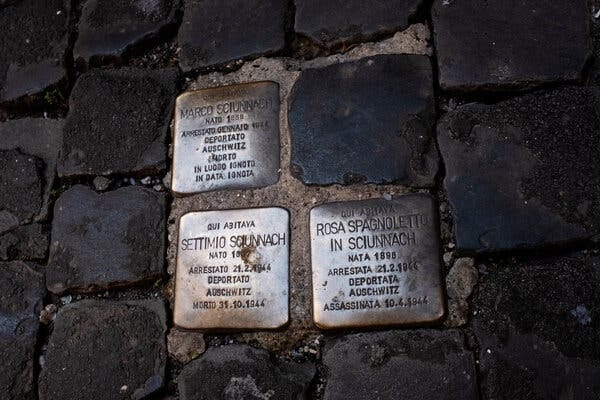
Saving the Sounds of an Ancient City
What a fabulous experiential article about the soundscape of Cairo. Two Cairenes have been recorded and posting various soundscapes of Cairo on their Instagram account, which now has a huge following. Anyone who has ever went to Egypt, and especially Cairo knows the beautiful cacophony of noises—from the call to prayer, the clopping of horse-drawn carriages to cars communicating via honks. Like smell, there is nothing that can transport you to another time and place. Makes us all so nostalgic for Egypt!
Book of Queer is now on Discovery+!
Kara was interviewed for the episode featuring Akhenaten (Episode 1)—make sure to check it out!
From the Ancient Ashes of Vesuvius, Human DNA
Archaeologists at Pompeii were able to recover DNA from human remains preserved after the eruption of Vesuvius. They were able to recover DNA material from the petrous, a very dense bone of the inner ear. In most cases the extreme heat of the volcano destroyed any chance for DNA recovery, making such a feat very trying. This hard-won DNA was sequenced and then compared to both contemporaneous Roman DNA samples along with modern samples. Analysis shows that the man’s DNA was incredibly similar to the other ancient DNA samples from around the Rome. His ancestors, however, can be traced back to Anatolia (modern Turkey) and Sardinia. (Kara’s DNA, by the way, shows similar ancient west Asian and North African roots! Maybe this is why she is obsessed with ancient Egypt?!?!) And as a side note, the individual suffered from Tuberculous spondylitis, a disease that would have affected his mobility.
What will DNA continue to reveal about humanity’s past (and future)?
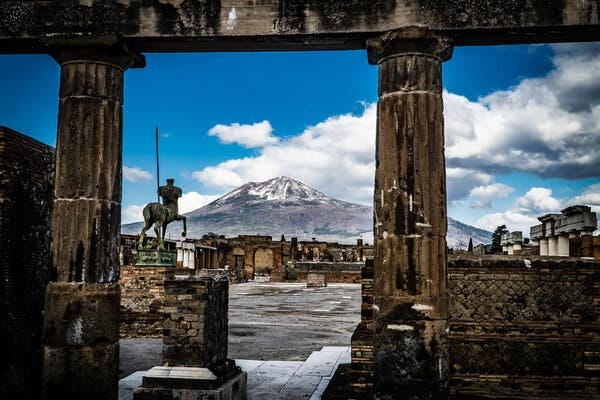
Berenike Discoveries: An Elite Tomb with Complete Set of Grave Goods
A Polish archaeological mission excavating at Berenike on the Red Sea coast recently uncovered a well-preserved elite tomb with complete grave goods. The tomb dates to the 4th-5th c. CE. The equipment and the form of the burials are unique in the whole of eastern Egypt,” says expedition co-director Dr. Mariusz Gwiazda of PCMA UW.
The walls and the floor of the tomb was covered in smooth white coral mix with plaster—a unique find. Never before has such a practice been recorded. Finds included over 700 beads, amphorae of wine, a lion-shaped censer, with incense included (!), and silver rings and earrings.
Berenike was inhabited by the local Blemmie culture at this time, with the Roman control of the site long gone, perhaps this is an example of resurgent indigenous burial practices??
Ruins of Ancient Temple for Greek God Zeus Unearthed in Sinai Peninsula
Egyptian archaeologists digging in the Sinai recently excavated a temple to Zeus. The temple was found at the site of Pelusium (now Tell-Farma) which dates back to the late Pharaonic period. The temple to Zeus, however, dates to the Greco-Roman occupation of Egypt, with evidence for the Emperor Hadrian renovating the temple at some point. Egyptologists surmise that the two granite columns were felled by an earthquake in ancient times.
The Sinai is often off-limits to tourists, but there are so many fantastic sites that would be incredible to visit—Pelusium being one of them! Some day, we will do this fabulous #fieldtrip!
Afterlives of Ancient Egypt with Kara Cooney Updates!
Some of you might have noticed we changed our podcast name slightly to better reflect our focus on the ancient world. We are hoping that this helps to make the podcast more discoverable for other ancient Egypt enthusiasts out there as well.
We also just recorded out first Patreon member Q&A episode which will be released in a week. Thanks to all the Patrons for sending in their questions and supporting us. If any of our Substack subscribers would like to get involved, you can become a Patron here. We’re going to do Patron-exclusive live Q&A zooms soon, so you will definitely want to be a part of that!! Who doesn’t want to ask us all their most ridiculous ancient world questions??
Jordan, Kara (and Amber!!!) have a tremendous amount of FUN recording this podcast, and we can only hope that this joy and curiosity comes across on the podcast.







